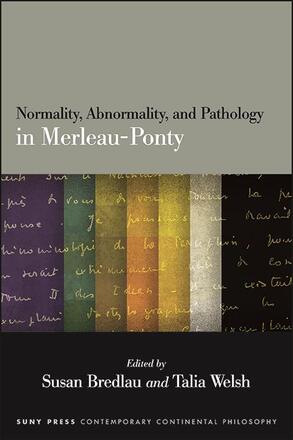
Normality, Abnormality, and Pathology in Merleau-Ponty
Alternative formats available from:
Drawing on Merleau-Ponty offers new insights into our understandings of health and illness, ability and disability, and the scientific and cultural practices that both enable and limit our capacity for diverse experiences.
Description
Maurice Merleau-Ponty’s work draws our attention to how the body is always our way of having a world and never merely a thing in the world. Our conception of the body must take account of our cultures, our historically located sciences, and our interpersonal relations and cannot reduce the body to a biological given. Normality, Abnormality, and Pathology in Merleau-Ponty takes up Merleau-Ponty’s phenomenology of the body to explore the ideas of normality, abnormality, and pathology. Focusing on the lived experiences of various styles of embodiment, the book challenges our usual conceptions of normality and abnormality and shows how seemingly objective scientific research, such as the study of pathological symptoms, is inadequate to the phenomena it purports to comprehend. The book offers new insights into our understandings of health and illness, ability and disability, and the scientific and cultural practices that both enable and limit our capacity for diverse experiences.
Susan Bredlau is Affiliated Faculty in the Philosophy Department at the University of Maine. She is the author of The Other in Perception: A Phenomenological Account of Our Experience of Other Persons, also published by SUNY Press. Talia Welsh is UC Foundation Professor of Philosophy and Women, Gender, and Sexuality Studies at the University of Tennessee at Chattanooga. She is the author of The Child as Natural Phenomenologist: Primal and Primary Experience in Merleau-Ponty’s Psychology.
Reviews
"This volume is a significant contribution to the field of Merleau-Ponty studies, clarifying and critically engaging with crucial ideas at play throughout a wide array of scholarship on Merleau-Ponty. It will also serve to bring Merleau-Ponty's work to greater attention in the fields of medical humanities and disability studies, in ways that will shine new light on both the limitations and possibilities of Merleau-Ponty's thought for helping us to make sense of the great variation in human embodiment and psychology." — Laura McMahon, Eastern Michigan University